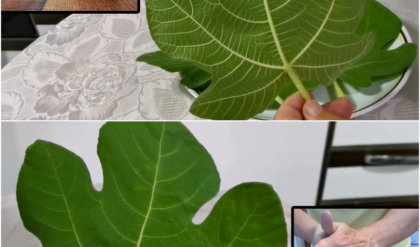Plus, this is how Drake wins rap beefs.

The obvious Drake disses on Future and Metro Boomin’s We Still Don’t Trust You dominated the narrative post-release, but if you listened to the album in full, one song resembles a certain Drake hit.
“This Sunday,” also known as the reference track for Drake’s “Feel No Ways,” being released almost a decade after its inception is nasty work. Future’s always had a writing credit on the Views cut, but now the world knows he conceptualized the lyrics and melody for the hook—not Drake.
A few days later, on April 15th, the alleged reference track for Drake’s “Jumbotron Shit Poppin,” recorded by Lil Yachty, was leaked to media outlets.
Rick Ross, never missing an opportunity to call Drake fraudulent, posted a story of “Yachty aka the pen,” dredging up the ghostwriter allegations that have plagued Drake for years.
Here’s a breakdown of the artists who have allegedly filled the ink in Drake’s pen.
What is a reference track?
Songwriters will record a reference track to illustrate how they envision their lyrics sounding. If the recording artist decides to use the reference, it’s at their discretion how much of the original they want to change, but they have to credit the songwriter.
Ghostwriting is like buying an essay for school off the internet and submitting it under your name. Reference tracks are less common in hip-hop because songwriting plays a larger role in credibility than genres like pop.
The Weeknd
In 2015, The Weeknd spoke to Rolling Stone about giving songs to Drake for Take Care, initially meant for his House of Balloons mixtape, at the beginning of his career. “I was hungry…I was like ‘Dude, take anything.’”
“I gave up almost half my album. It’s hard. I will always be thankful—if it wasn’t for the light he shined on me, who knows where I’d be,” said The Weeknd, referring to Drake’s early co-sign.
This adds some color to The Weeknd’s recent Drake diss on “All to Myself” (“I thank God that I never signed my life away”) about dodging the OVO bullet.
Majid Jordan
The R&B duo signed to Drake’s OVO in 2013 and both of their names have appeared in the songwriting and production credits of Drake’s albums. But in an interview with Hot 97, they shed light on the conditions of Drake’s 2013 songwriting sessions for Nothing Was The Same.
“They basically put us in the studio, it was like a studio camp almost, there were tents in there – ‘make beats! stay in the dungeon! You cannot leave! You can’t tell anyone you’re working on this project!’ Literally tents… real tents in the vocal booths, everything. I slept in a tent in the studio.”
Majid Jordan was featured on “Hold On, We’re Going Home,” but you probably don’t know they wrote and produced the reference track, which became one of the album’s singles.
PARTYNEXTDOOR
Once is chance, twice is coincidence and third is…a trend? R&B artist Partynextdoor was the first OVO signee in 2013, who is known to have also penned reference tracks for Drake.
In 2016, Party’s reference tracks for “Legend” and “Company” from Drake’s If You’re Reading This It’s Too Late leaked online. It was controversial since Party wasn’t credited in the liner notes for “Company” at the time (he is now credited on Genius). You can hear both reference tracks below.
What does this mean?
Drake’s ghostwriter allegations are nothing new (cc: Meek Mill’s accusations during their beef), but Future and Lil Yachty’s reference tracks coming to light add to the stack of hits that Drake has created, at least in part, from other artists’ ideas.
Ideas from some OVO prospects that are lent at the beginning of their careers, when the songs they’ve penned will be a bigger success (and profit) if sung by Drake. It’ll be interesting to see if 4batz, who signed a one EP deal with OVO, appears in the credits of Drake’s next album.





